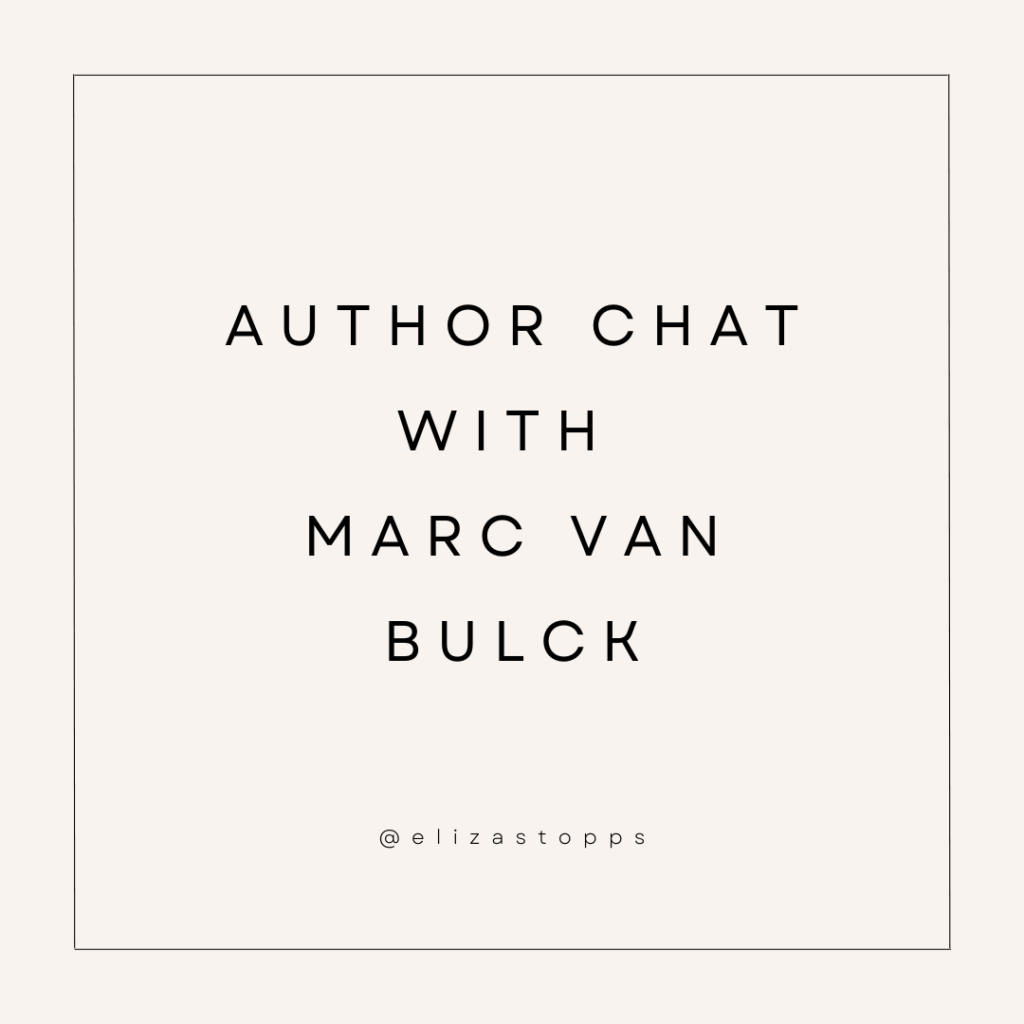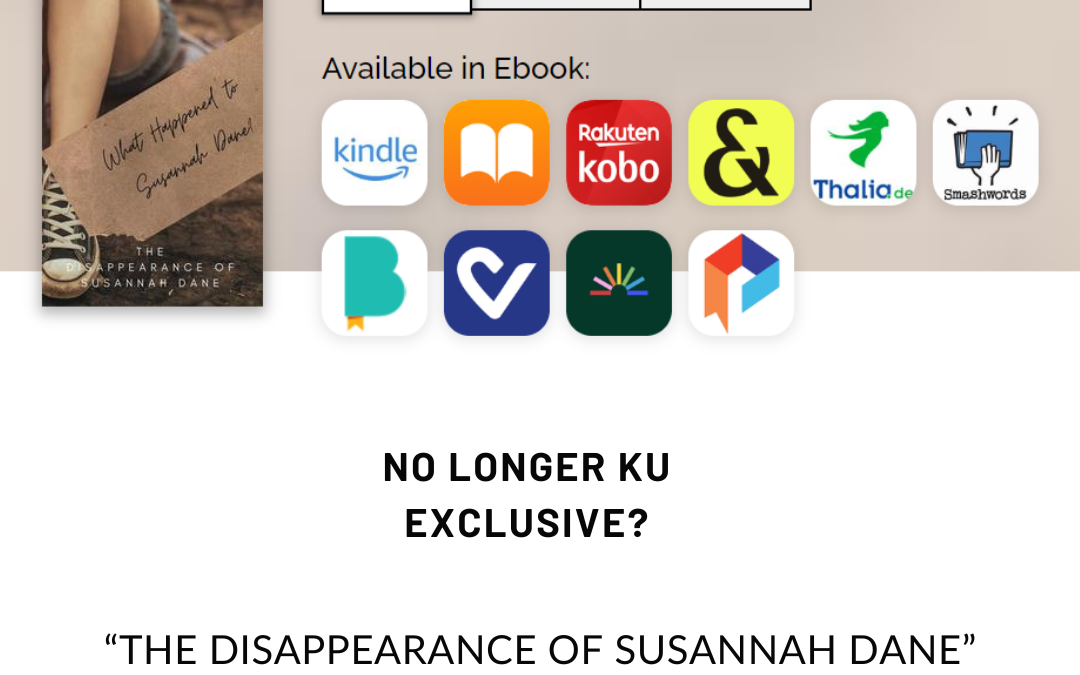I first chatted with Marc back in April, during my 30 Days of Blogging challenge, where I interviewed him all about his story Gray Man. Today, we’re sitting down to chat about our upcoming projects! The interview is going to be a little bit different today, however, because I’m going to ask Marc some questions and he’s going to ask me some questions! I hope you enjoy it.

Eliza: What have you been working on since we last chatted in April?
Marc: I’m currently hosting a podcast called “Don’t Encourage This” on Spotify, Apple Podcasts, iHeartRadio, etc. It’s a long-form interview-based podcast where I chat with artists that I think are interesting and occasionally some interfaith theologians. I’m very interested in the creative process, and I have found that every artist’s process is a little bit different. So, it’s a wonderful opportunity for me to learn more about that and share some of those conversations with others. I’ve interviewed a few published authors already!
How about you? What are you working on these days?
Eliza: Right now, I’m writing the third book in my young adult series, Paige Parker Mysteries. The book is called The Boy We All Forgot and I’m releasing it weekly on Kindle Vella. Eventually, I’ll publish it wide on other platforms (and in paperback) but that’s where it’s at right now.
Do you have any tips for authors who want to write a short story but are overwhelmed by the “possibilities”? Such as, how long it should be (how long can it be?) or whether they are allowed to mix and mash genres?
Marc: Well, I’m not an expert on this, but I tend to think that the idea should always come first. I rarely ever approach a project from the point of view of “I want to write a short story” or “I want to write a long story.” I tend to start with “I want to tell a story about a young grieving man who sees the ghost of his dead mother” or “I want to tell a story about a young man who keeps wandering into works of classical literature.” Or whatever it is. I start with the idea and then ask myself what form would serve it the best (rather than the other way around).
A carpenter rarely asks, “What can I build today that would give me an excuse to use my hammer?” They would say, “I’m building a chair today. What tools are going to be best for that project?” I tend to approach creative projects similarly.
How about you? You must have ideas for books and stories all the time. How do you decide which idea is the right idea? Especially since this is going to take a considerable amount of your energy and time?
Eliza: Often it will start with a scene that I think of. Maybe it’s an argument between two people or I get an idea for a mystery that is like “What if there was a story where a young woman finds letters that she’s receiving that appear to be from her past self?” (that’s an upcoming novel I’m working on.) And when that idea hits, inspiration usually follows so I will just start writing – without concern for which chapter the scene will go in or where it fits. Then I will start plotting around that. But I come up with ideas all the time and I always write them down or email them to myself. Whenever I finish the book I’m working on, I will look through them and see which one sparks for me!
What has been the most surprising part of publishing your book, Gray Man? Were there any challenges that you just did not see coming?
Marc: Even though Gray Man is a very short book, I spent almost a year doing preparation, research and studying the folk tale on an allegorical level. I spent a long time thinking about what kind of story I wanted mine to be (not to mention actually sitting down to write it). I also needed to wrap my head around the independent publishing process before moving forward with it. So, when it came time to actually publish the book, I had a pretty good idea of what I could expect from the process.
What I didn’t expect was how difficult it would be to let it go after it was finished. Works of art are never finished. They are only abandoned. I was warned by an author friend of mine to be especially careful as I started getting closer to the finish line. She suggested that I might find myself getting increasingly possessive and having a harder time letting it go. That I would want to keep “fiddling” with it. I didn’t really believe her at first. I was so looking forward to being done with it that I figured I would be relieved to finally be able to walk away. It turns out I was wrong, and she was 100% right. Towards the end of the process, I became so anxious and possessive. So, I had to remember her advice…
How about you? You’ve published a large number of books in your career (far more than I have). What do you think is one of the most important pieces of advice that you would give to newcomers?
Eliza: I think the best advice I can give is to not get “in your head” about it. So many people want to write a story but feel like they don’t have time or don’t know what to say or worry that it’s going to turn out poorly. And they spend so much time stuck in that space that they never actually get around to writing it. I think every first draft is going to be terrible, at least until you’ve been writing for long enough that you know exactly what to do. And that’s a hard hurdle to cross, but you just have to push through it!
You mentioned before that an old folk tale was incorporated into your story. If you sat down to write a story today, would you try to find inspiration in another folk tale? Why or why not?
Marc: No, I don’t think so. I love myth and folktale. I thoroughly enjoyed working on this story because the legend of the Gray Man is one of my favorites. However, I also try to avoid repeating myself creatively from project to project. I like to mix it up and explore different themes, genres and ideas. It keeps things fresh and creatively interesting for me. I do have a kernel of an idea for a sequel to “Gray Man.” I may circle back around to that one day, but I’m not in any hurry.
How about you? You’ve explored all sorts of different genres in your own writing career. You’ve written young adult mysteries. The Leslie Kim series explores all sorts of cool genres like fantasy and science fiction. How did you create the idea for that series of serials? How did Leslie’s character come into being for you?
Eliza: I had just finished writing this really long, epic fantasy and I wasn’t sure what to write next. But my husband and I sort of brainstormed this character who had a complicated relationship with his dad and the name kind of comes from that Johnny Cash song, “A Boy Named Sue.” So, we started there and then I kind of blended my love of Supernatural and Firefly to imagine this world where he travels to different planets and hunts a different monster of the week. Since those books are pretty short (generally under 40,000 words), it feels like a way to treat myself between my more “serious” projects.
Gray Man is also available as an audiobook. How was the process of creating an audiobook? Did you use ACX?
Marc: Yeah, the audiobook was done on ACX. That was a lot of fun! I’d never produced an audiobook before, although I have worked in audio production on other projects over the years. Podcasts and other various things. So, I had some awareness about what to expect. However, audiobooks are their own ball of wax. Platforms like Audible are very strict and extremely specific about how those things need to be recorded and produced. I don’t think I would have been able to manage all of that on my own.
I worked with a very talented professional actress named Stevi Incremona Dybas. She did all the recording from her studio in New York. She would send me cuts of the audiobook, and we would e-mail back and forth with ideas, direction, and small production notes.
Stevi is a very prolific audiobook narrator and producer, so she knew the process like the back of her hand. Plus, she’s an incredible actress. That made the project a breeze. If I had been left to my own devices, that thing would have taken months to finish (or might not have been finished at all). Working with Stevi, though, we locked the final cut in probably three weeks or so.
Would you ever want to narrate one of your own books for audio? How do you feel about that?
Eliza: I have definitely thought about it, but there are so many characters in my books and I just know that the voices would sound so cheesy. I’m actually in the process of publishing the audiobook for The Disappearance of Susannah Dane through ACX as well. I’m working with a wonderful narrator, Taunya Nesler, and she’s far more talented and more experienced than me when it comes to narration!
Thank you so much for joining me for this author chat. It’s fun to do an interview that isn’t quite so one-sided!
___
Marc van Bulck
Marc van Bulck is a minister in the Presbyterian Church (U.S.A.) and the author of “Gray Man: A Story” available from Palmetto Publishing Group. A native of Sumter, South Carolina, Marc is a graduate of Emerson College and Columbia Theological Seminary. Over the years, Marc has also been an actor, writer, director, keynote speaker, and podcaster. He loves films, theater, television, the arts and humanities…and coffee. Marc currently serves as the Associate Pastor at Oxford Presbyterian Church in Oxford, Ohio.
Eliza Stopps
Eliza started her writing career in 2016, when she finished her first fantasy novel, though writing has been a lifelong passion. She has released eight books across multiple genres. The one thing that all her books have in common is a compelling mystery at the heart of the heart of them. Eliza’s love for storytelling and weaving a plot together has kept her writing ever since.
You can read her science fiction mystery novellas, The Leslie Kim Serials, if you’re into alien species and distant planets. If you want to keep your feet on the ground, consider trying out her new young adult mystery series, the Paige Parker Mysteries.
Check out her blog where she shares her writing process, interviews with other authors, and book reviews. Eliza lives in the middle of nowhere with her three little boys, her dreamboat husband, and an array of four-legged friends.




0 Comments